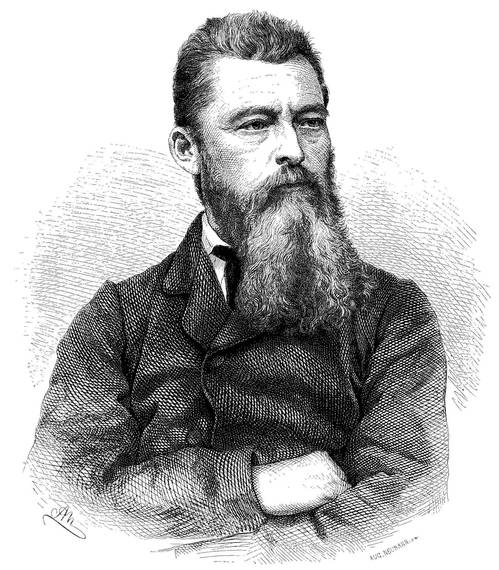"The Devil divides the world between Atheism and Superstition."
George Herbert (1593-1633)
One month after September 11, 2001 Richard Dawkins wrote in the British paper The Guardian, "Many of us saw religion as harmless nonsense. Beliefs might lack all supporting evidence but, we thought, if people needed a crutch for consolation, what's the harm? September 11 changed all that."
Sam Harris in his book The End of Faith (2004) suggested that Muslims might be so unreasonable that, "the only thing likely to ensure our survival might be a nuclear first strike of our own."
I wonder if atheists find statements like this as embarrassing as I regard the crazy and even immoral claims of my fellow religionists. Perhaps Dawkins and Harris are the Jerry Falwells and Fred Phelps of atheism.
Both Christians and Buddhists have been called atheists by opponents who understood their claims. Roman authorities persecuted Christians who described the deities and the religious practices of the empire as superstitions. Atheism in the modern west grew out of a commitment to uncovering the truth that originated in Judaism and Christianity.
In certain respects I share more in common with the atheists I encounter than some other Christians. I appreciate my atheist friends who insist that governments should not infringe on the freedom to believe or not believe. I too value the importance of reason in evaluating the pictures of the world that determine how we act.
I disagree with certain atheists in the nineteenth century who wrote that it is immoral to believe something on the basis of evidence that not every person finds compelling. That is because evaluating the truth of religious claims for me is more like the question of whether or not your wife loves you than what is the square root of 12.
Many Christians do not believe in the same picture of God that atheists do not believe in. For me, God is not an old man living in the sky. The Bible was not dictated by God but is a library of books written by different authors under very different circumstances.
The twentieth century theologian Paul Tillich (1886-1965) points out that God is not an object like the other objects we encounter in the world (in this sense God does not exist). Rather he claims that God is the ground of being, the basis for all things that do exist.
Modern atheists could learn a great deal from Ludwig Feuerbach (1804-1872), the German thinker who inspired the atheism of Karl Marx, Sigmund Freud and Friedrich Nietzsche. Feuerbach recognized the power of religion, even its beauty and mystery. He believed that we should have already gotten past the sixteenth and seventeenth century debates about whether or not God exists and instead discuss what we mean by the word God.
Feuerbach famously stated that theology is anthropology. He proposes that religions arise out of taking the best qualities we see in human life (creativity, love, self-sacrifice, loyalty, fairness, intelligence, etc.) and projecting those onto a god that we falsely believe is separate from us.
Although I thoroughly disagree with this basic point, Feuerbach has three important criticisms for Christians. First, he takes us to task for falsely choosing faith over love. He believes that we are more concerned about protecting God's honor than about actually loving other people. In his words, "the highest commandment [for Christians]... is Believe!" when it should be love.
Second he blames Christians for being so concerned about the afterlife that they do not seem to care much about those around them except as a means for "getting in to heaven." Finally, Feuerbach suffered for what he believed. He hated the arrogance and superiority that he experienced from Christians in authority. I wonder if these criticisms could contribute to making our Christianity stronger, clearer, and maybe even truer.
Feuerbach writes, "Man with his ego or consciousness stands at the brink of a bottomless abyss; that abyss is his own unconscious being, which seems alien to him and inspires him with a feeling which expresses itself in words of wonderment such as: What am I? Where have I come from? To what end? And this feeling that I am nothing without a not-I which is distinct from me yet intimately related to me, something other, which is at the same time my own being, is the religious feeling."
That feeling which Feuerbach calls an alienated experience of his own unconscious being sounds similar to my own mystical encounter with God. We can draw different conclusions from a similar experience without questioning each other's sincerity.
So how should people who believe and those who do not believe treat each other? We can begin to respect the authenticity of each other's experiences without simply dismissing the other as ignorant, dangerously evil, sinful or selfish. We might even learn something about the people around us and this mysterious world in which we all find ourselves.
